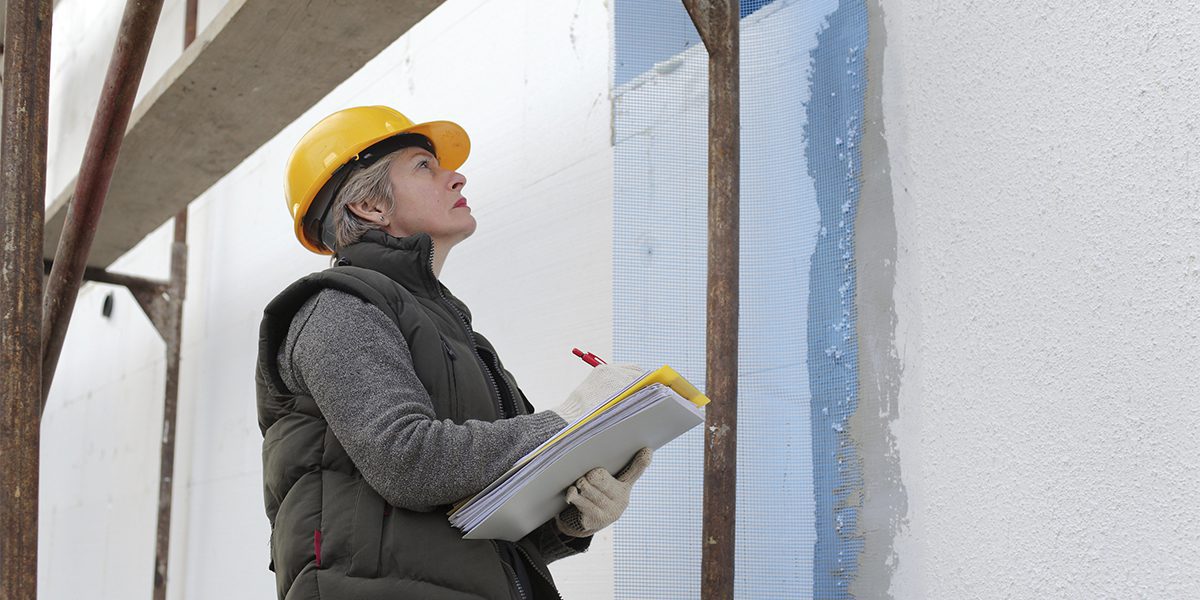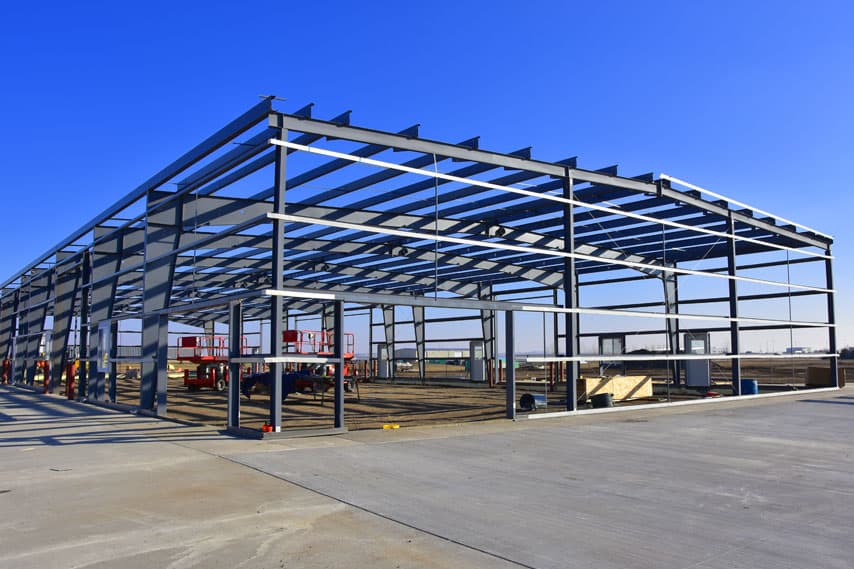Navigating the Pitfalls of Leasing Existing Commercial and Industrial Buildings

Leasing an existing commercial or industrial building can be an appealing option for businesses looking to establish their operations. The allure of ready-made infrastructure and the potential cost savings can make these properties seem like the perfect fit. However, it is essential to exercise caution and conduct thorough due diligence before signing a lease.
The Allure of Existing Buildings: A Cautionary Tale
Imagine this scenario: you sign a lease for a space in a building based solely on the word of your leasing agent and past images. You are excited about the prospect of moving into a fully functional space, only to discover that the reality does not match the visuals. Unbeknownst to you, The building was previously used for chemical processing, requiring far more work and reclamation than initially promised. As a result, the space becomes unusable for you, and now you face unexpected costs and delays.
This cautionary tale highlights the dangers of relying solely on trust when signing a lease and the consequences of undisclosed building conditions. It serves as a reminder to thoroughly investigate – in person where possible – any property before signing a lease.
The Importance of Due Diligence
To avoid falling victim to similar situations, conducting due diligence is paramount. Here are some key steps to consider when leasing an existing commercial or industrial building:
Thorough Property Inspection
Before committing to a lease, it is essential to conduct a comprehensive inspection of the property. This inspection should identify any potential issues that may affect your ability to utilize the space as intended. Involving experts or inspectors with relevant commercial or industrial real estate knowledge can provide valuable insights and help uncover hidden problems.
Requesting Disclosure from Landlords
Landlords have a responsibility to provide accurate and complete information about the property's history. When negotiating a lease agreement, it is crucial to include clauses that require full disclosure of previous uses and potential liabilities. This way, you can make informed decisions based on the property's true condition and potential risks.
Evaluating Infrastructure and Compliance
Apart from the physical structure, evaluating the building's infrastructure and ensuring compliance with zoning regulations is essential. For example, verify the condition and functionality of plumbing, electrical systems, and HVAC. Additionally, consider environmental factors, such as soil contamination or the presence of hazardous materials. These evaluations will help you identify any potential red flags that could impact your operations or pose future liabilities.
Engaging Legal Expertise
Lease agreements can be complex legal documents, and it is wise to seek legal advice to protect your interests. An experienced attorney can help review the lease terms, negotiate on your behalf, and ensure that the agreement adequately addresses your needs. They can also assist in clarifying responsibilities and liabilities in case of undisclosed issues or breaches of contract.
Challenges with Landlords

Dealing with landlords can present its own set of challenges. Here are some common difficulties and strategies to mitigate them:
- Lack of Transparency: Obtaining accurate and complete information from landlords can be difficult. Some may not willingly disclose potential issues or previous uses of the property – as was the case in our cautionary tale above. As a tenant, it is crucial to be persistent and ask the right questions. Conduct your research and engage experts to verify the provided information independently.
- Resisting Negotiations and Improvements: When leasing an existing building, you may have specific requirements or need certain improvements to align the space with your business needs. However, some landlords may refuse to make changes or rectify undisclosed issues. To navigate this challenge, establish open lines of communication with the landlord and communicate your needs and expectations from the beginning. Finding common ground and demonstrating the potential benefits of the improvements may help persuade the landlord to accommodate your requests.
To address the challenges with landlords effectively, proactive communication is key. Here are some strategies to consider:
- Establish Open Channels: Foster open and transparent communication channels with your landlord. Clearly communicate your goals, concerns, and expectations. By maintaining a positive and respectful relationship, you are more likely to find mutually beneficial solutions.
- Document Everything: Keep thorough records of all communication, agreements, and any issues encountered throughout the leasing process. This documentation will serve as evidence and protection in case of disputes or breaches of contract.
- Seek Mediation: In situations where conflicts arise, consider engaging a professional mediator. A neutral third party can facilitate constructive discussions and find compromises that both parties can agree upon.
- Consult Legal Advice: If negotiations with the landlord reach an impasse or significant issues require legal intervention, consult with your attorney. They can guide you through the legal process, protect your rights, and help you navigate any disputes or breach of contract situations.
Constructing Your Own Commercial Building: A Superior Alternative

While leasing an existing commercial or industrial building may seem like a convenient option, constructing your own building offers several advantages that can outweigh the potential pitfalls of leasing. Here are five compelling reasons why building your own commercial space may be a superior alternative:
- Customization and Design Control
When you construct your own commercial building, you have complete control over the design and layout. This means you can tailor the space to meet your specific business needs and requirements. From the floor plan to the infrastructure and amenities, every aspect can be customized to enhance efficiency, productivity, and customer experience. By having this level of control, you can create a space that truly aligns with your brand and vision. - Future-Proofing and Scalability
Building your own commercial space allows you to future-proof your business. You can incorporate cutting-edge technologies, energy-efficient systems, and sustainable features from the start. This not only reduces operational costs but also positions your business as a forward-thinking and environmentally conscious entity. Moreover, constructing your own building provides flexibility for future expansion or modification. As your business grows, you can easily adapt and scale the space accordingly, eliminating the limitations often associated with leasing. - Long-Term Cost Savings
While leasing may appear cost-effective initially, constructing your own building can lead to significant cost savings in the long run. Lease agreements typically involve ongoing rental payments that increase over time. By investing in constructing your own building, you gain property ownership, allowing you to build equity and potentially reduce overall costs. Additionally, with careful planning and strategic construction decisions, you can optimize energy efficiency and maintenance costs, further saving on operational expenses. - Brand Image and Market Differentiation
A custom-built commercial building provides a unique opportunity to create a distinctive brand image and stand out from competitors. The design, architecture, and aesthetics of your building can make a lasting impression on clients, customers, and stakeholders. It showcases your commitment to quality, professionalism, and attention to detail. A well-designed and visually appealing building can help enhance your brand's visibility and attract new customers. - Reduced Legal and Regulatory Risks
Leasing an existing building often involves inheriting the previous tenants' or owners' legal and regulatory responsibilities. Undisclosed issues, compliance violations, or hidden liabilities can create significant risks for your business. By constructing your own building, you have better control over ensuring compliance with regulations and building codes from the beginning. This reduces the likelihood of unexpected legal complications or potential disruptions to your operations. -
Leasing an existing commercial or industrial building can offer numerous advantages, but it also comes with many potential pitfalls. Relying solely on outdated visuals or failing to conduct thorough due diligence can lead to unexpected costs, delays, and unusable spaces. It is crucial to take proactive measures to protect your interests.
However, while leasing an existing commercial or industrial building may seem like an attractive option, constructing your own building offers numerous advantages that outweigh the potential pitfalls of leasing. Customization, design control, future-proofing, scalability, long-term cost savings, enhanced brand image, and reduced legal risks are just a few of the benefits associated with building your own commercial space.
At Flynn Bros Projects, we specialize in construction services tailored to meet the unique needs of our clients. We understand the value of having a space that reflects your brand identity and optimizes your operations. By opting to build your own commercial building, you can create a space that truly represents your vision and empowers your business to thrive in the long term. Contact Flynn Bros Projects today for a free consultation for your next commercial building project.
Stay Connected with Us!
Follow us on our social media channels to get the latest updates, exclusive offers, and behind-the-scenes content. Join our community and be part of the conversation!
